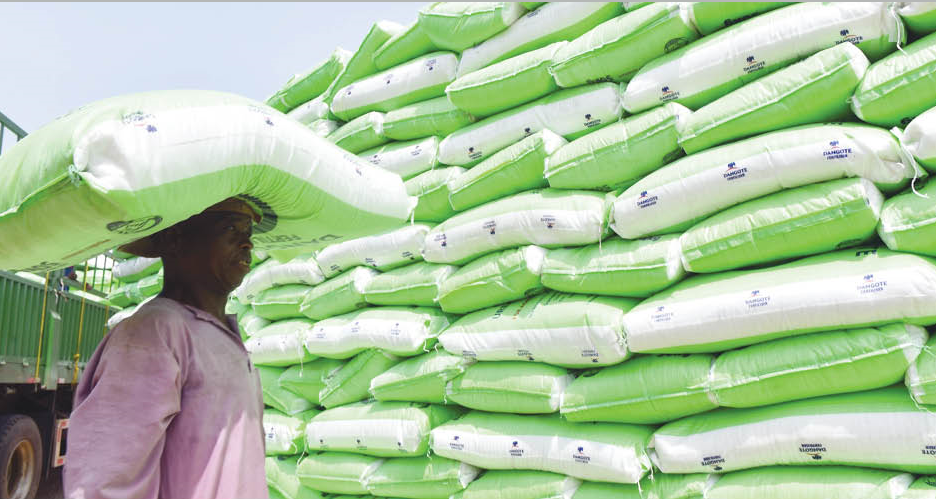The president of Nigeria, Muhammadu Buhari visited Lagos on Tuesday to unveil the Dangote fertilizer plant, which is dubbed to be one of the largest fertilizer plants in the world.
The plant by Dangote Fertiliser plant has a capacity to produce 3 million tonnes of urea and ammonia annually, with the plant stated to have cost $2.5 billion.
The unveiling of the plant came at a critical time when the world is suffering from supply shortages and record inflationary pressure. Notably, fertilizer prices have surged to a record high, sparking fears of global starvation and the worst food insecurity level since the World War II.
Nigeria is also a major importer of fertilizer. The African giant imported fertilizers worth $261.69 million in 2020, which has been exacerbated by the sustained faceoff between Russia and Ukraine. According to the Africa Development Bank, Nigeria relies heavily on imported fertilizers to meet 80% of its national demand.
Considering the significant role that fertilizer plays in the food supply chain, it becomes necessary to highlight some fertilizer plants operating in the country. Below are some of the plants as compiled by Nairametrics Research.
Edo State Fertilizer Plant, Edo State
- The Edo State Fertilizer plant was commissioned by the vice-president, Yemi Osinbajo in August 2017 and is said to have a capacity to produce about 60,000 metric tonnes of fertilizer.
- The plant had been constructed over 18 years ago, by the Lucky Igbinedion administration, but was abandoned until 2017, when the plant officially commenced production.
Notore Fertilizer plant, Rivers State
- Notore, formerly known as National Fertilizer Company of Nigeria (NAFCON), is a verticall integrated agro-allied and chemicals business situated in Onne, Rivers State. The company is engaged in the production and sale of fertilizer products.
- According to the company, its current businesses comprise of fertilizer production, supply and trading of fertilizer, and power. It is worth noting that the company produces granular urea, NPK fertilizers, and ammonia.
Dangote Fertilizer Plant, Lagos State
- The newly commissioned fertilizer plant in Lagos State, is owned by Dangote Group with the capacity to produce about 3 million tonnes of fertilizer annually.
- According to the information on the company’s website, Dangote Fertiliser Plant is Africa’s largest Granulated Urea Fertiliser complex. The plant occupies 500 hectares of land in Lekki Free Trade Zone, Lagos Nigeria.
- Dangote Fertiliser works with Farmer Associations, Corporate Farms, NPK Blenders, NGO/development partners and State Governments all over Nigeria, as well as governments across Africa and beyond who are looking for sustainable approach to improve soil and farm yields.
Indorama Eleme Fertilizer & Chemicals, Rivers State
- Indorama Eleme Fertilizer & Chemicals Limited (IFL) was the largest producer of granular urea in Sub-Saharan Africa, before the commissioning of the Dangote plant.
- The plant is located in Port Harcourt, Nigeria, and was commissioned in 2016. It has a production capacity of 2300 tons per day of ammonia and 4000 tons per day of granular urea, which made it the world’s largest single-train urea plant.
- Along with the main process plants, Indorama also constructed a gas pipeline to transport natural gas to the facility and an export terminal at Onne Port to export urea to international markets.
Why this matters
- The recent supply shortage in the global fertilizer prices, which has seen the price of fertilizer surged to record high is a cause for worry for Nigeria, considering that we depend heavily on the importation of fertilizer products.
- However, with more fertilizer plants being commissioned across the country, Nigeria could be on its way to attaining self-sufficiency in terms of fertilizer production and supply. It is also worth noting that agreements have been made to build some other fertilizer plants across the country.
